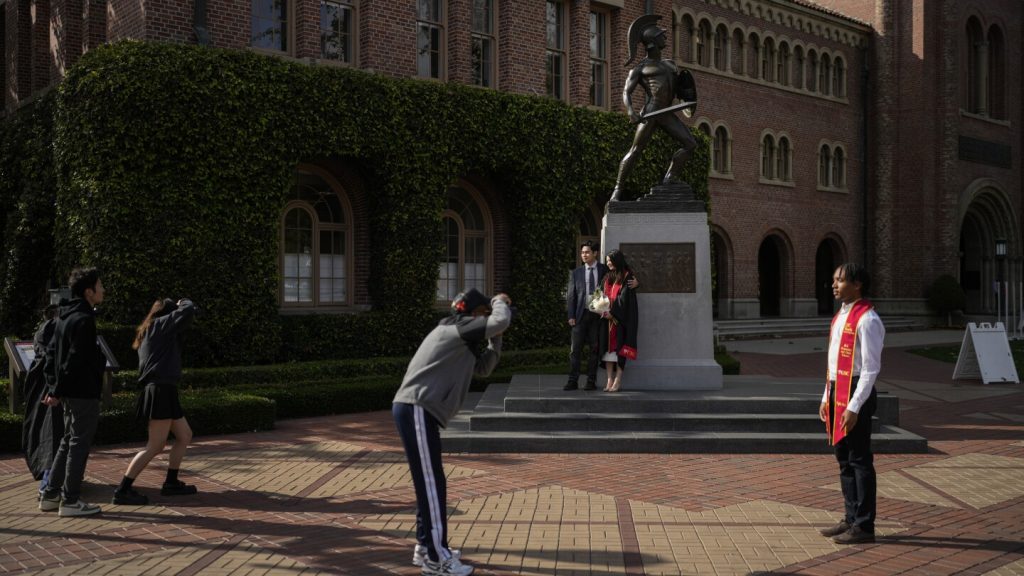The University of Southern California is facing controversy over its handling of the Israel-Hamas conflict, with President Carol Folt acknowledging that recent protests on campus have been difficult. The university initially faced backlash for not allowing the 2024 valedictorian, who supports Palestinians, to give a commencement speech due to unspecified security concerns. This decision was criticized by students, faculty, and alumni, and the situation escalated when USC canceled filmmaker Jon M. Chu’s keynote speech and honorary degrees.
Following protests at Columbia University, students at USC called on the university to divest from companies that do business with Israel or support its military actions. Ninety demonstrators were arrested during protests on the Los Angeles campus, leading to the cancellation of the main graduation event on May 10. University officials cited safety concerns and the inability to process tens of thousands of guests with new safety measures in place, prompting criticism from the campus community.
President Folt broke her silence on the situation, condemning the protests and stating that safety policies had been violated, leading to the need to protect the community. However, she did not provide specific examples of assault, vandalism, or other issues. Critics have compared USC’s response to that of UCLA, where no arrests were made during protests. The University of California system stated that calls to boycott and divest from Israel impinge on academic freedom and the exchange of ideas on campuses, emphasizing that tuition and fees are not invested.
Protests also erupted at Stanford University and Cal Poly Humboldt in Northern California, with demonstrators defying deadlines to leave campuses or risking arrest. At Cal Poly Humboldt, protesters occupied buildings and were removed by police, resulting in multiple arrests. The Senate of faculty and staff at the school demanded the university president’s resignation in a no-confidence vote. Stanford saw a tent encampment of protesters remaining despite threats of discipline and arrest, with sheriff’s deputies searching the area but no immediate word of arrests.Both universities announced strict closures and enforcement measures to maintain safety on campus. The situation at USC and other campuses highlights the challenges universities face in handling controversy and protests related to international conflicts.















